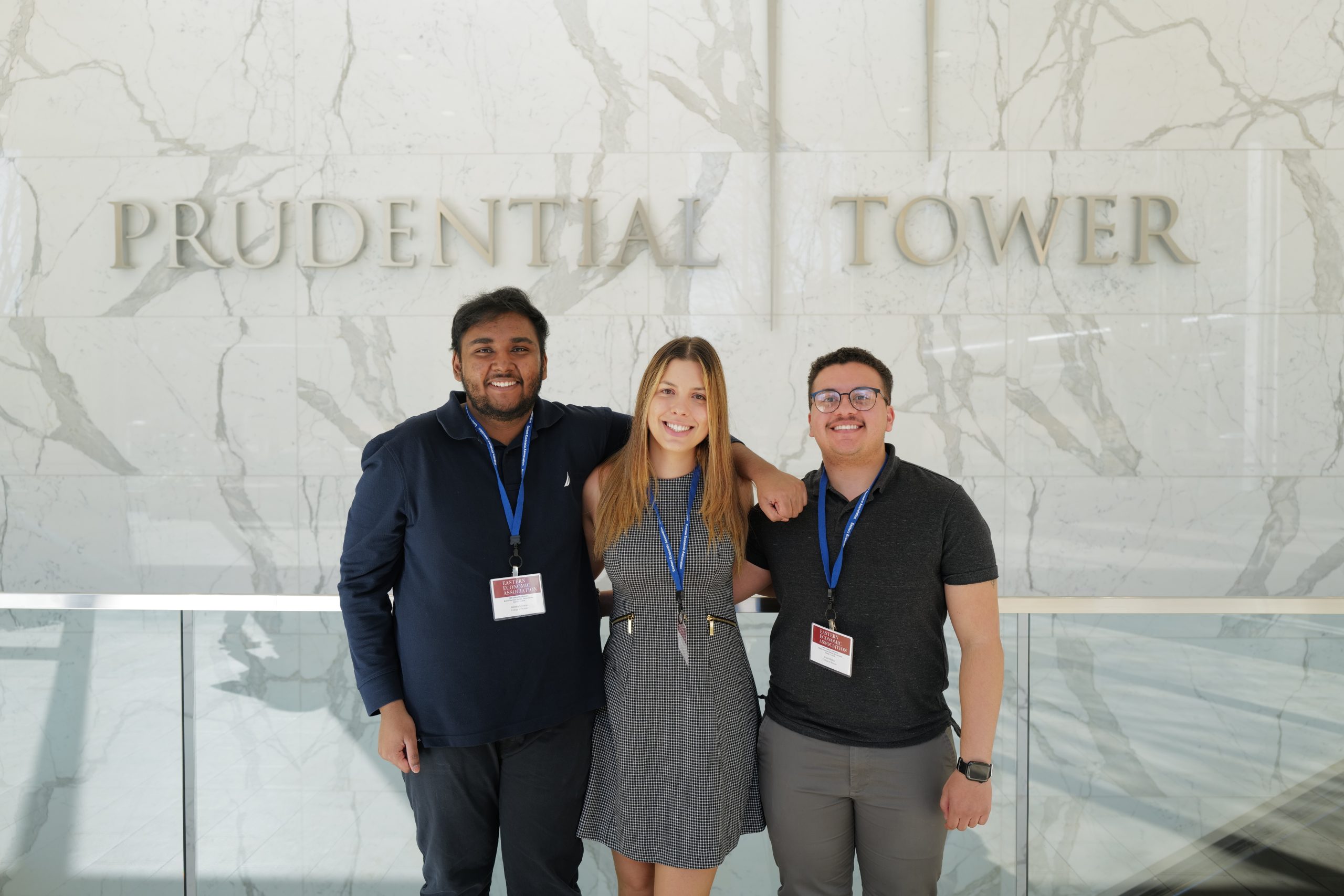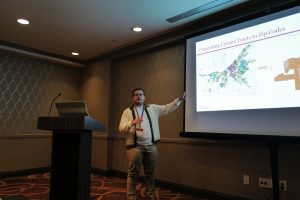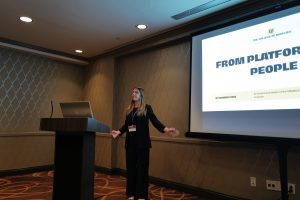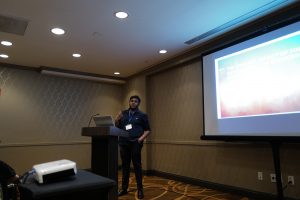Three students from our department presented their senior thesis at the annual Eastern Economics conference in Boston this weekend. Amanda Iskin , Rehann Silvanus, and Liam Walker also served as discussants for other research papers. Accompanying them to the conference were their faculty mentors, Krause and Moledina. Following their presentations, they met with Boston alumni: Yuxuan Ke 00, John Hotchkiss ‘10, Phuong Pham ‘17 and Khoa Dao ‘15. This year sustains a twenty-year economics department tradition of supporting students to present their research at national conferences and Wooster’s 72 year commitment to excellence in undergraduate research. 
Our students are mentored in a pluralist department by nationally recognized faculty. Students develop abilities to ask critically relevant questions of our time using contemporary analytical tools taught to them in a scaffolded curriculum.
Liam presented his paper on “The Enduring Connection: Redlining, Race, and the Ongoing Disparities in Breast Cancer Mortality Rates Among Black Women”. In it he used the Grossman health model along with empirical data to show that 72 more black women die in redlined zip codes of Cuyahoga county Ohio every year. This mortality rate persists, even in the presence of a health center in the zip code. Liam therefore proposes mobile screening clinics and community based education programs to address this injustice.
Amanda presented her paper on “From Platforms to People: The Impact of Peer-2-Peer Lending on Financial Inclusion in the United States”. The US has 24.6 million households that do not have full access to banking services. Peer to peer platforms use special algorithms to evaluate credit worthiness. These promise to support the extension of credit to individuals that have traditionally been outside the banking system. She derived a model of consumer credit to frame her empirical difference in difference approach. This approach takes advantage of a unique policy where the state of Iowa banned P2P lending, generating the conditions for a natural experiment. She finds that peer to peer lending can have strong effects and expand credit. However her results caution us to not think of this form of credit expansion as a silver bullet. P2P lenders are unable to transcend the existing and structural racial bias in the US.
Finally, Rehann Silvanus presented “The Catalysts of Prosperity: An Exploration of the Impact of Financial Deepening on Economic Growth in Nepal”. In it he explored the financial history of Nepal noting the changing structure of the financial system especially key liberalization moments and structural reforms. He utilized modified macroeconomic models to show the theoretical impacts of financial deepening. He was able to test his theories using an empirical Error Correction Model. Rehann’s results show support for financial depth does seem to have more of a long term effect on economic growth in Nepal.



Stay tuned for more updates about the rest of class of 2024 who will be finishing their independent studies soon.